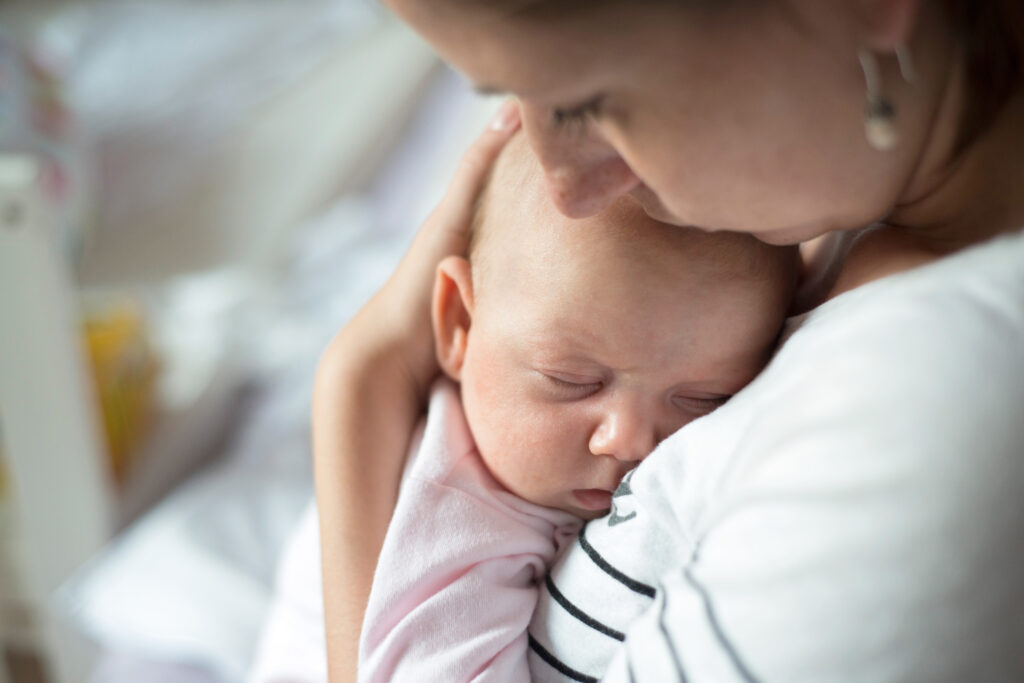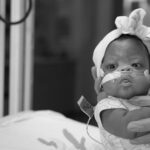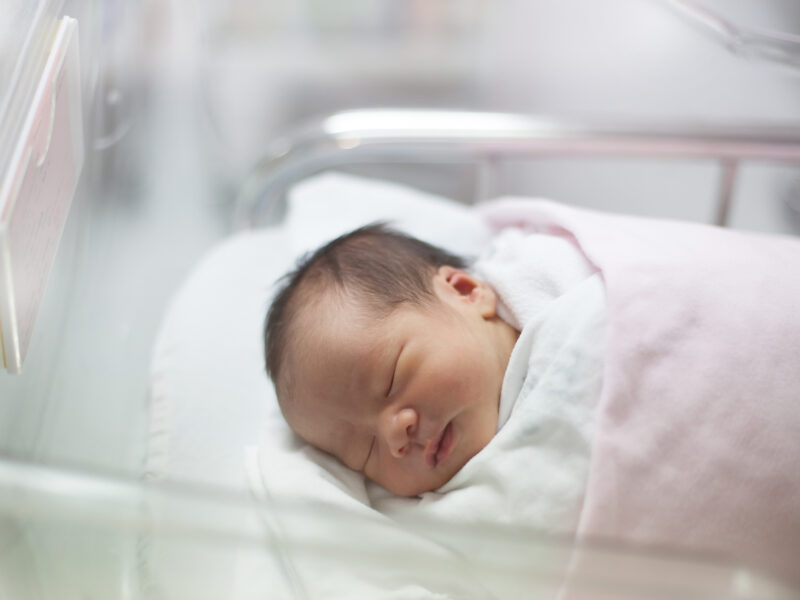What Are the Risk Factors for Recurrent Wheezing in Late Preterm Infants?
What Are the Risk Factors for Recurrent Wheezing in Late Preterm Infants? https://pediatricsnationwide.org/wp-content/uploads/2021/03/AdobeStock_109625528-1024x683.jpg 1024 683 https://pediatricsnationwide.org/wp-content/uploads/2023/07/May-2023.jpg
A collaboration between a pulmonary medicine fellow and allergy and immunology expert identifies four risk factors associated with recurrent wheezing in these patients.
When Brooke R. Gustafson, MD, a member of the Section of Pediatric Pulmonary Medicine at Nationwide Children’s and an assistant professor of pediatrics at The Ohio State University College of Medicine, needed to complete a primary fellowship research project, she decided to collaborate with Mitchell H. Grayson, MD.
Dr. Grayson, the chief of the Division of Allergy and Immunology at Nationwide Children’s, wanted to launch a study to determine the prenatal factors that increase the risk of recurrent wheezing in infants born late preterm. While most allergies and asthma are diagnosed after age three, recurrent wheezing can be a precursor. Dr. Gustafson and Dr. Grayson wondered if understanding the risks of recurrent wheezing in late preterm infants would help avoid chronic respiratory issues like asthma or allergies later in life.
“We have a robust neonatal intensive care unit (NICU) patient population here at Nationwide Children’s. There is a lot of research done on progressive lung disease in infants born extremely prematurely, before 32 weeks. But we also know that premature infants who are born closer to term and don’t have extreme lung issues can develop recurrent wheezing as well. We wanted to know if anything specifically related to the perinatal period could lead to issues such as recurrent wheezing,” Dr. Gustafson says.
Dr. Gustafson reviewed the charts of 314 infants born between 32 and 36 weeks gestational age at Nationwide Children’s over the first three years of their lives. 210 of the infants developed recurrent wheezing, and 104 did not. She excluded infants with other medical conditions.
The study, recently published in Pediatric Pulmonology, identified recurrent wheezing by a diagnosis of reactive airway disease, wheezing-associated respiratory infection, wheezing, or asthma at least twice during the first three years of life. Dr. Gustafson compared infants diagnosed with recurrent wheezing to matched infants who did not develop wheezing.
The risk factors examined included various factors related to these infants’ birth, neonatal care, and early life experiences. Dr. Gustafson found that recurrent wheezing was associated with these factors:
- positive family history of asthma
- receiving antibiotics during the neonatal period
- requiring continuous positive airway pressure (CPAP) for less than 24 hours
- receiving supplemental oxygen during the newborn period
- requiring any degree of respiratory support
“A family history of asthma is a well-known risk factor. Receiving antibiotics is a new one. However, it’s too soon to say that administering antibiotics truly leads to recurrent wheezing in late preterm infants,” Dr. Gustafson says.
The CPAP duration was more statistically significant, not clinically significant.
“The length of time for CPAP treatment was a bit of an anomaly. Our statistician did a subsequent multivariable regression model that showed less than 24-hour CPAP treatment wasn’t associated with the development of current wheezing. This is a more specific type of statistical analysis. In that analysis, receiving oxygen was still statistically significant,” Dr. Gustafson says.
Overall, the study found that exposure to any type of respiratory support, including invasive mechanical ventilation, noninvasive ventilation like CPAP, or oxygen, was a significant factor associated with developing recurrent wheezing, regardless of duration those supports were needed
It was also interesting to note that about 80 of the infants were diagnosed with a virus that led to recurrent wheezing. The most common virus was respiratory syncytial virus (RSV).
Identifying these risk factors at birth may assist physicians in providing more effective treatment and knowing what issues to look for. According to Dr. Gustafson, more studies are needed to determine whether these factors can predict recurrent wheezing in this patient population.
Reference:
Gustafson B, Britt RD Jr, Eisner M, Narayanan D, Grayson MH. Predictors of recurrent wheezing in late preterm infants. Pediatr Pulmonol. Published online November 3, 2023. doi:10.1002/ppul.26739
Image credit: Adobe Stock









